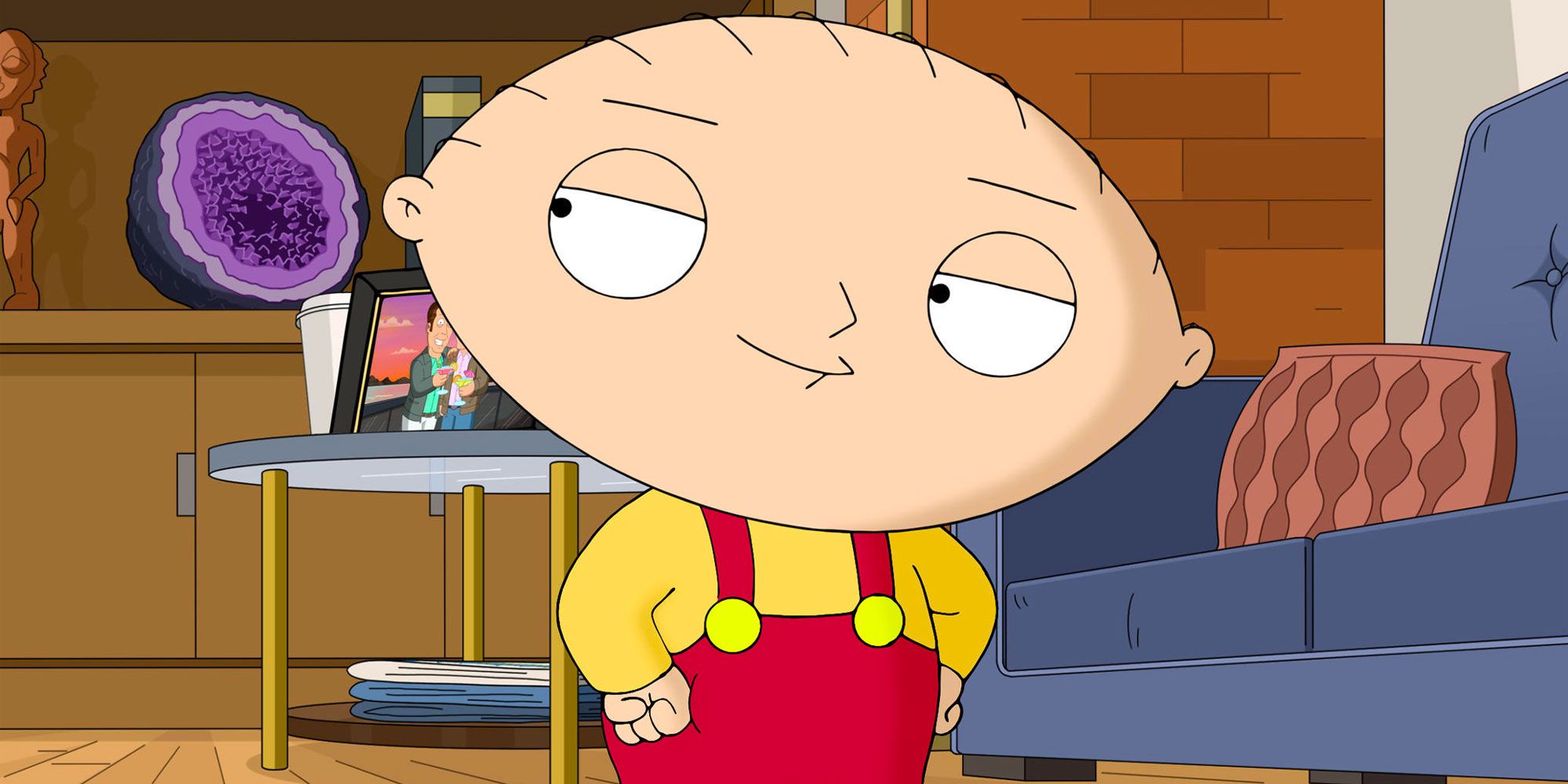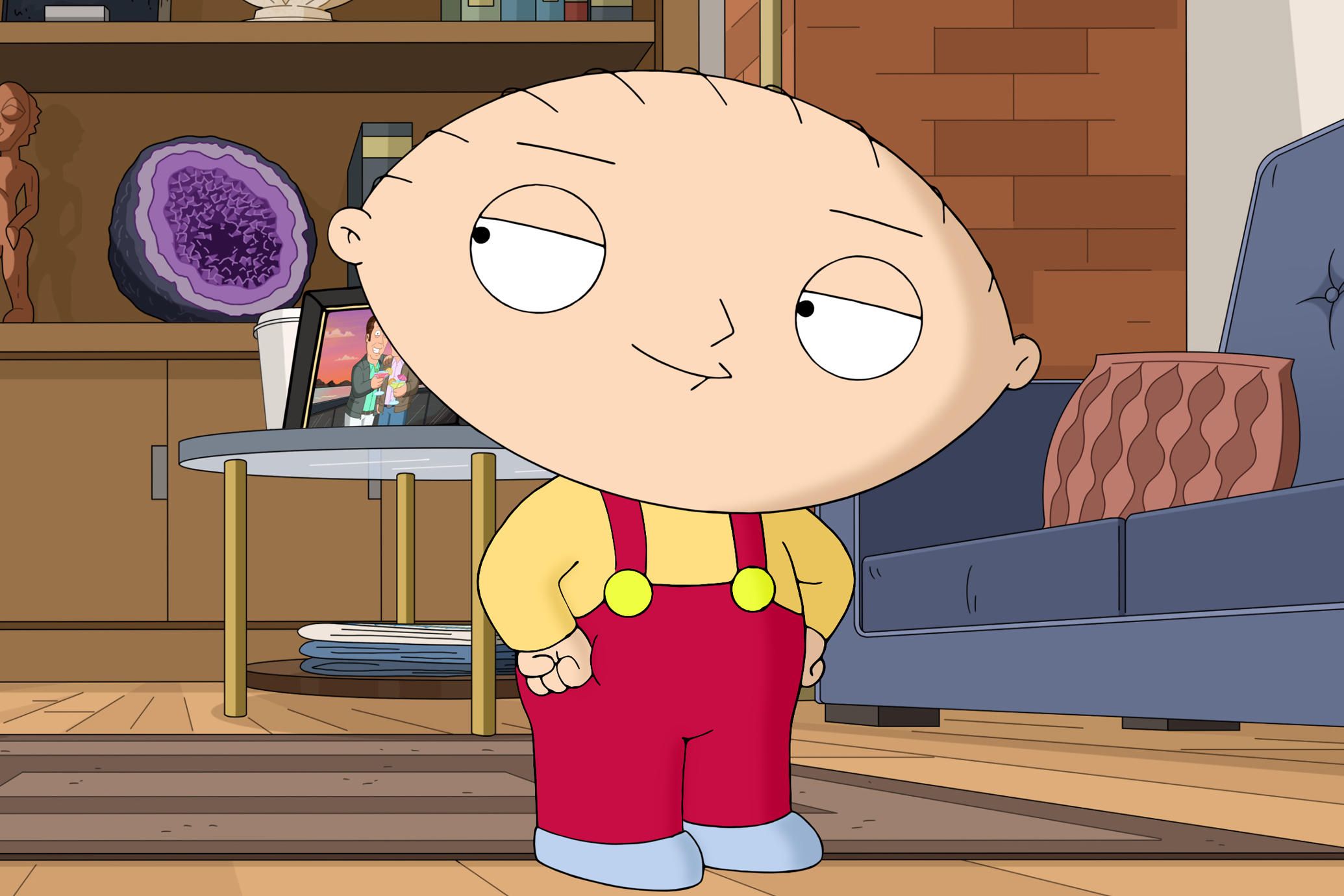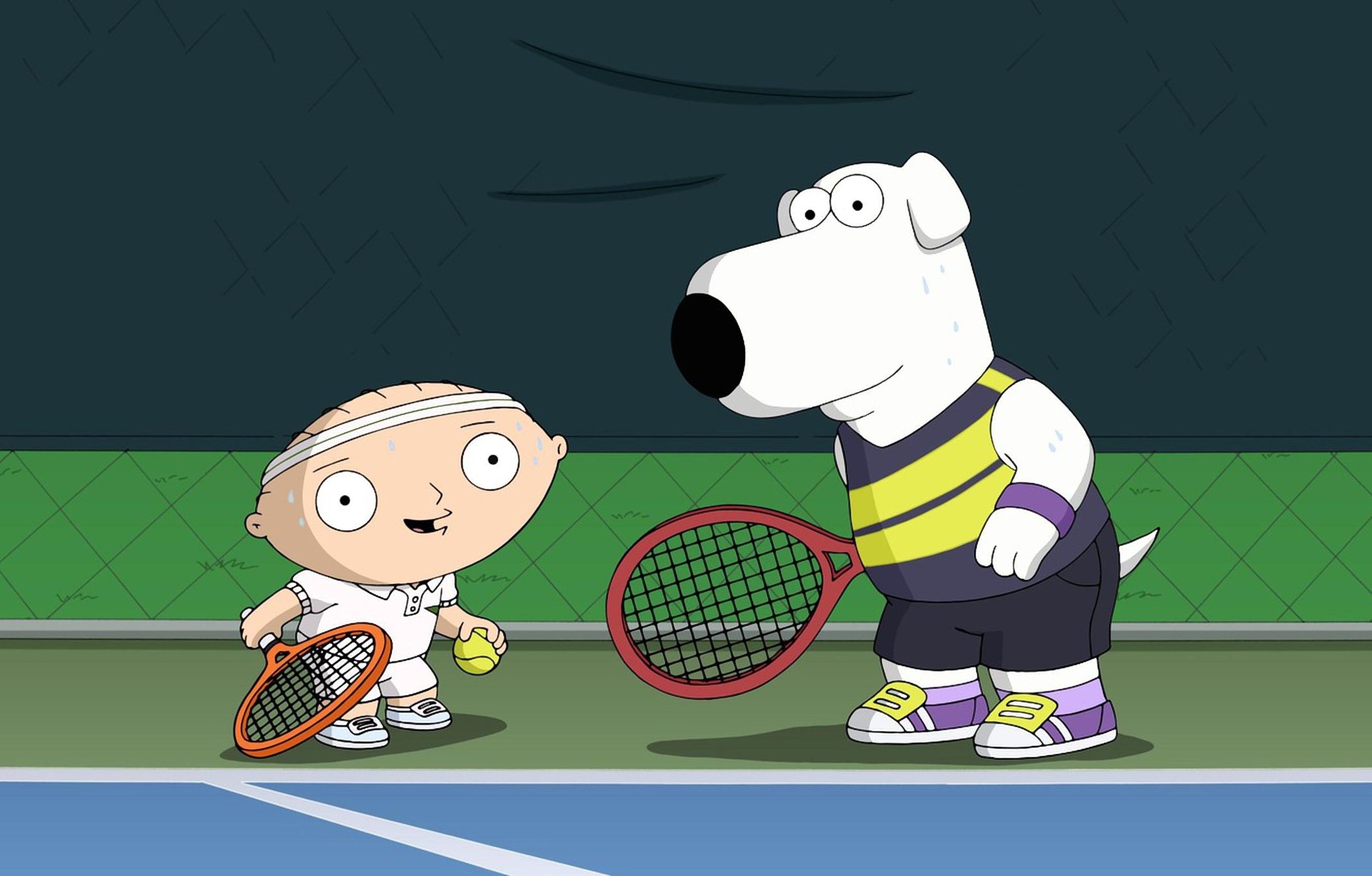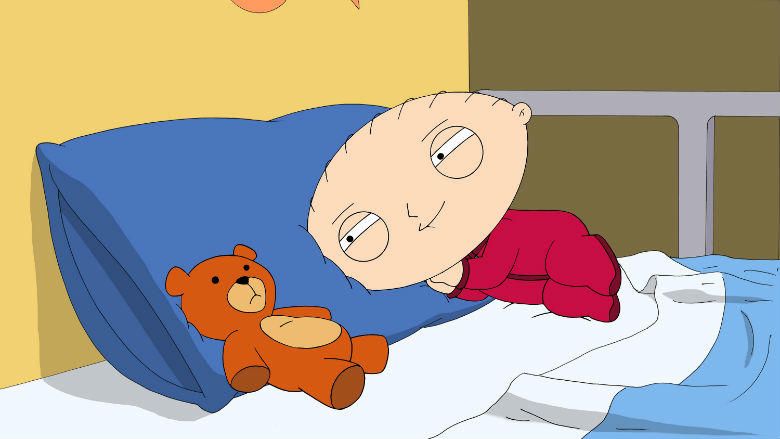When Family Guy debuted 20 years ago, it was built up as a subversion of more traditional sitcoms. The animated format and slapstick tone allowed for the show to go as big as it wanted to, and it played with the characters accordingly -- at first. They quickly became hardened parodies of the more cliched characters in sitcoms. For example, Peter Griffin's "dumb but well-meaning" father archetype morphed into an idiot who ruins everything while being juvenile and unrepentant. The show as a whole doubled down on this, turning every character in the series into the most extreme version of themselves, all for the sake of mining those traits for the frequent dark jokes the series employs for shock laughter.
But while Family Guy has turned almost every character into a one-note joke machine designed to feed into the over-the-top offensive bits that fuel the series, Stewie Griffin has actually become increasingly nuanced and compelling. Seriously, he might be one of, if not the most complex character in modern animation.
RELATED: Family Guy Eulogizes Carrie Fisher's Character
Bad Baby
Stewie was introduced as the most cartoonish member of the cast, even more so than Brian, the talking dog. Twisting the traditional perception of children as characters, Stewie was in no way cute. He was homicidal, casually cruel, and generally just a super villain in diapers. The joke was watching him have to interact with the more mundane world around him, like preschool or the playground, and how his evil tendencies changed those aspects of his life (his primary goal was to kill his mother, Lois). But as the series continued and the creators grew more bold with their stories, Stewie started to develop a soft side.
RELATED: Family Guy Pays Tribute to Adam West With Highlight Reel
His genius intellect and dark morality didn't stop him from actually enjoying things like his favorite children's show or trying to make friends. He quietly began to appreciate things in life, even indulging in just acting like a child at times. It's in those moments where Stewie actually seems happy, but they're few and far between. He cites the fact that he's smarter then everyone he knows, not just technologically but socially and maturely, as a reason to act like he hates everything. He already knows life will disappoint him, so why bother? His overt and forced cynicism has even been commented on in the show, with his brother Chris at one point verbally stunning Stewie by bluntly asking why he has to always be so negative.
NEXT PAGE: Stewie and Brian, Family Guy's Boy and His Dog
There's really only one consistent character who gets along with Stewie: Brian. The talking dog of the Griffin family (essentially the lazy uncle character taken to its most absolute extreme), Brian and Stewie have had a number of episodes dedicated solely to their relationship. The pair are simultaneously bickering jerks and dedicated companions, with many of the most acclaimed episodes of the series focusing on just the two of them. Even if Stewie outclasses Brian in terms of intelligence, Brian can at least empathize with Stewie. After all, he, too, is often ostracized for his actions, views and beliefs. He's able to support Stewie, and at least understand his loneliness if not completely make up for it.
But Brian is also awful. As the series has progressed, and the characters have become even broader versions of their earlier selves, Brian became less of a mouth-piece for the writers and more of a general example of modern hypocritical attitudes. He's someone who will turn on his beliefs and morals, using them to feel entitled rather than inspired. He acts like he's the greatest writer in the world, when in-universe he's described as mediocre at best. He puts on an air of honor, but always sells out his beliefs for small gains. He knows he's smarter than most people, but fails to recognize that doesn't make him a genius.
RELATED: Family Guy's Deadpool Parody Released Online
This has been reflected in the series, especially in the sense that Brian and Stewie are both keenly aware that Stewie is going to outpace Brian in every way possible. The two snipe at one another over it, but it also forms a quiet tragedy at the core of their relationship. Even though he knows all of his faults and flaws, Stewie loves Brian. He's the only one that understands him, even a little, making them best friends almost by default. And for a kid who's already disappointed in everything around him, that's a very important thing to have.
Out Of The Closet
Another factor of the character that has been explored with surprising depth over the years is Stewie's sexuality. While it's been recognized as a landmark move for a prime-time series, it's also been the butt of many jokes. The punchline of, "Isn't it funny how Stewie is gay?" hasn't really aged gracefully. But unlike other repeating jokes, as the series has gone on, it's actually toned down on this one. Stewie's not quite reached the point where he's fully out, but it is an open secret that he barely denies. In perhaps the show's most surprising move, his sexuality is a factor of his life and his desires, but not the motivating drive or defining aspect.
Last seasons's Send in Stewie might be a highlight for the entire series, and Stewie in particular. The episode is almost told exclusively in a therapists office, as Stewie speaks with a child psychologist about why he pushed a boy at school. The episode touches on how lonely Stewie feels, and how he pushed the boy because he liked him and was afraid he wouldn't like him back. It's the sort of thing a child would actually do... but Stewie is cursed with the comprehension to realize that, and to realize how it seems. So he tries to deny it, but admits that stating he's "confident in his heterosexuality" feels weird to say.
During the episode, he reveals his British accent is just as fake as his half-hearted front of heterosexuality. He chooses to put it on so he can justify feeling different from everyone else. Stewie, like countless others, knows how that kind of knowledge can weigh on him. But he also has learned to still find pleasure in the small things that make him happy, like Brian, his acceptance of who he is, and his own superiority. It's a surprisingly effective level of depth to give to what was initially an extended joke character, and has turned him into the complex heart of the series, showing what it can be when it's at its best.




